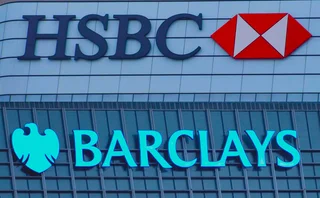
Editor’s letter

They might as well call autumn in the US ‘the fall’ as much for what happens to the carmakers as the leaves. In November last year, the rating agency and market punch bag Standard & Poor’s placed Ford, also a market punch bag, on review for possible downgrade. Ford’s rating was already mid-triple-B, and a one-notch downgrade would take the company to the cusp of junk, but that was the best-case scenario. Worse would have been a downgrade and a negative outlook, leaving Ford teetering on the brink.
After the review for downgrade was first announced in October, spreads on Ford bonds exploded: the European bonds maturing in 2009 widened more than 80bp in two days to 245bp. But after a month of spreads trading well above 200bp, S&P announced a downgrade was sufficient and Ford would remain on a stable outlook: the bonds tightened by almost 100bp in response.
This year it was General Motor’s turn – another carmaker, another punch bag. And this time S&P didn’t give a warning: it went straight ahead with a downgrade. As a result the market missed out on the pre-downgrade fun and games over whether GM would be left on a stable or negative outlook – it was left on stable.
The two falls are not identical: S&P acted more decisively on GM, the move was widely expected and there were fewer protestations over this downgrade (S&P had given Ford a BBB stamp of approval just a month earlier on a $3 billion bond). Still, the lack of surprise didn’t stop GM’s bonds – and those of other autos – being hit: the European 2010 bonds widened by as much as 41bp to 173bp. Similarly dated Ford bonds widened 39bp. There was no rally from this downgrade.
However, outside the auto sector, the market appears to have barely noticed. Last year, when Ford was put on review for downgrade, the European denominated Lehman index widened 3bp to 77bp and after the downgrade it tightened 4bp, reassured that one of its biggest participants was not about to fall from grace. Since GM’s downgrade this year, the Lehman corporate bond index has widened just 2bp, but it took almost a week to do it.
And that 2bp widening should be seen in context. Last year insurance companies were perceived to be on the mend; last month they were accused of being on the take. Last year, the equity markets were expected to rally on strong earnings growth; this year any rally is expected to be bought with the spare cash that bondholders have been banking on. And at a more macro level, Bush was president last year and that was all the capital markets cared about; this year the US is in the middle of the most fiercely fought and divisive election campaign in living history.
I’m no investment guru, but all that doesn’t sound very reassuring for credit. But as one real-money manager commented recently: “Credit does seem to be defying gravity.” While autos and insurance are all big headline stories, investors don’t seem too concerned about the market: although shareholders are becoming restless, balance sheets are looking healthier and economic growth is positive but not rampant. Anyway, who needs fundamentals these days? If they turn bad there’s always a boatload of CDOs waiting for wider spreads, which should provide a base in any sell-off.
Only users who have a paid subscription or are part of a corporate subscription are able to print or copy content.
To access these options, along with all other subscription benefits, please contact info@risk.net or view our subscription options here: http://subscriptions.risk.net/subscribe
You are currently unable to print this content. Please contact info@risk.net to find out more.
You are currently unable to copy this content. Please contact info@risk.net to find out more.
Copyright Infopro Digital Limited. All rights reserved.
As outlined in our terms and conditions, https://www.infopro-digital.com/terms-and-conditions/subscriptions/ (point 2.4), printing is limited to a single copy.
If you would like to purchase additional rights please email info@risk.net
Copyright Infopro Digital Limited. All rights reserved.
You may share this content using our article tools. As outlined in our terms and conditions, https://www.infopro-digital.com/terms-and-conditions/subscriptions/ (clause 2.4), an Authorised User may only make one copy of the materials for their own personal use. You must also comply with the restrictions in clause 2.5.
If you would like to purchase additional rights please email info@risk.net
More on Regulation
Critics warn against softening risk transfer rules for insurers
Proposal to cut capital for unfunded protection of loan books would create systemic risk, investors say
Barr defends easing of Basel III endgame proposal
Fed’s top regulator says he will stay and finish the package, is comfortable with capital impact
Bank of England to review UK clearing rules
Broader collateral set and greater margin transparency could be adopted from Emir 3.0, but not active accounts requirement
The wisdom of Oz? Why Australia is phasing out AT1s
Analysts think Australian banks will transition smoothly, but other countries unlikely to follow
EU trade repository matching disrupted by Emir overhaul
Some say problem affecting derivatives reporting has been resolved, but others find it persists
Barclays and HSBC opt for FRTB internal models
However, UK pair unlikely to chase approval in time for Basel III go-live in January 2026
Foreign banks want level playing field in US Basel III redraft
IHCs say capital charges for op risk and inter-affiliate trades out of line with US-based peers
CFTC’s Mersinger wants new rules for vertical silos
Republican commissioner shares Democrats’ concerns about combined FCMs and clearing houses







